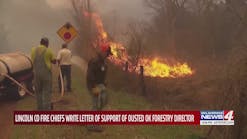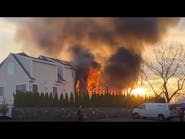BALTIMORE, MD – In addition to training and equipment, firefighters also need something that’s long been overlooked – psychological support.
But, that’s now changing – thanks to the National Fallen Firefighters Foundation.
Over the next two days, fire service officials from across the country are learning ideas and practices for firefighter behavioral health.
For the past five years, consultants with the NFFF have been working to develop programs for officers to utilize as they learn to help their crews.
Dr. Richard Gist, who spearheaded the project, said there’s a lot of research out there on stress and how to address it. He said he and his team have been working to digest those studies so officers can use the information as soon as they get home.
The work that went into the behavioral project was also a collaboration between fire/rescue personnel and researchers, he said, adding that without that, it wouldn’t work.
Debriefings or after-action reviews should be done not only after “the big one,” he said.
Gist added: “Every time the wheels roll, ask these five questions: What was our mission? What went well? What could have gone better? What might have we done differently? Who needs to know?”
What’s vital is that they are leader-guided, focused and that it is not a lecture.
A chief officer will know each person on the crew. They need to keep the line of communications open on a daily basis, day in and day out, not just after a bad call.
“One person’s critical incident is another person’s day at the office,” he said.
Not discussing things after calls is a missed opportunity to check on your responders’ mental health.
NFFF Executive Director Ron Siarnicki lauded Gist and Vickie Taylor for their efforts, calling them champions for carrying the mission forward.
Over the next two days, officers meeting with the NFFF will be learning curbside manner as well as identifying signs that a person may need psychological assistance.






